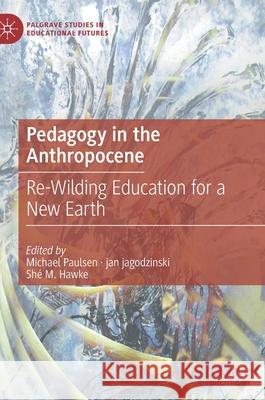Pedagogy in the Anthropocene: Re-Wilding Education for a New Earth » książka
topmenu
Pedagogy in the Anthropocene: Re-Wilding Education for a New Earth
ISBN-13: 9783030909796 / Angielski / Twarda / 2022 / 404 str.
Pedagogy in the Anthropocene: Re-Wilding Education for a New Earth
ISBN-13: 9783030909796 / Angielski / Twarda / 2022 / 404 str.
cena 726,29
(netto: 691,70 VAT: 5%)
Najniższa cena z 30 dni: 616,85
(netto: 691,70 VAT: 5%)
Najniższa cena z 30 dni: 616,85
Termin realizacji zamówienia:
ok. 16-18 dni roboczych.
ok. 16-18 dni roboczych.
Darmowa dostawa!
Kategorie:
Kategorie BISAC:
Wydawca:
Springer Nature Switzerland AG
Seria wydawnicza:
Język:
Angielski
ISBN-13:
9783030909796
Rok wydania:
2022
Ilość stron:
404
Waga:
0.63 kg
Wymiary:
21.01 x 14.81 x 2.39
Oprawa:
Twarda
Wolumenów:
01
Dodatkowe informacje:
Wydanie ilustrowane











